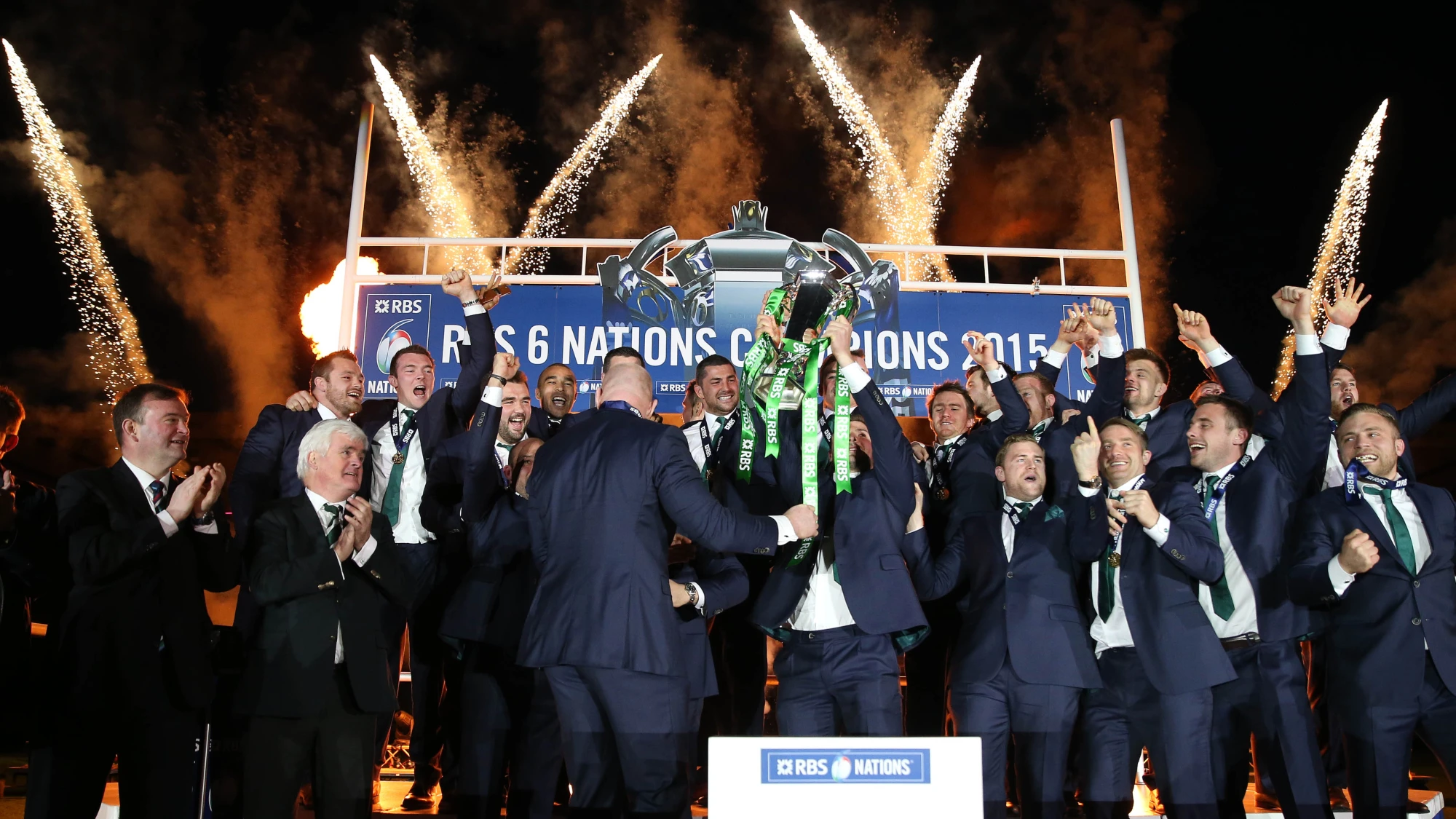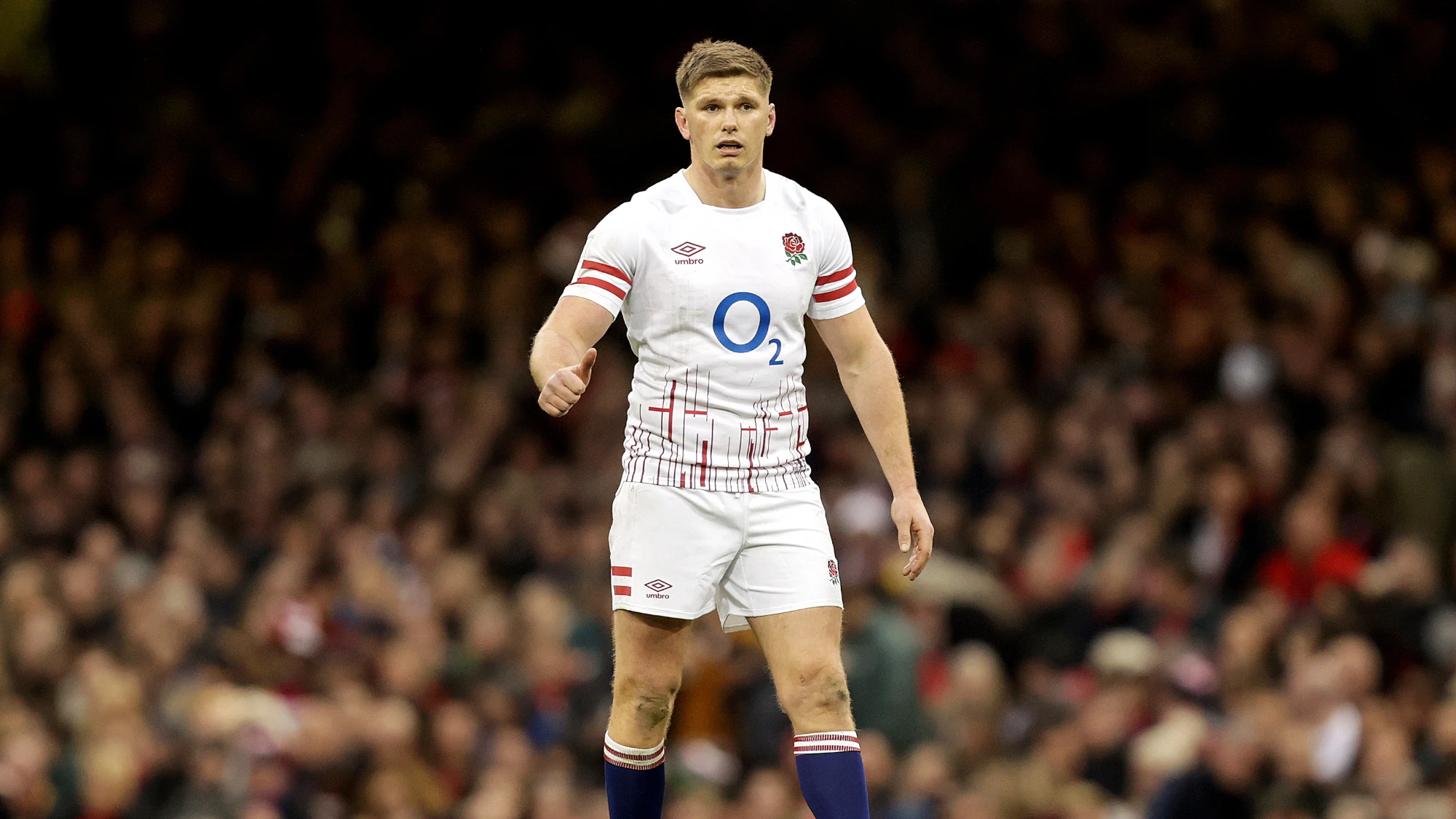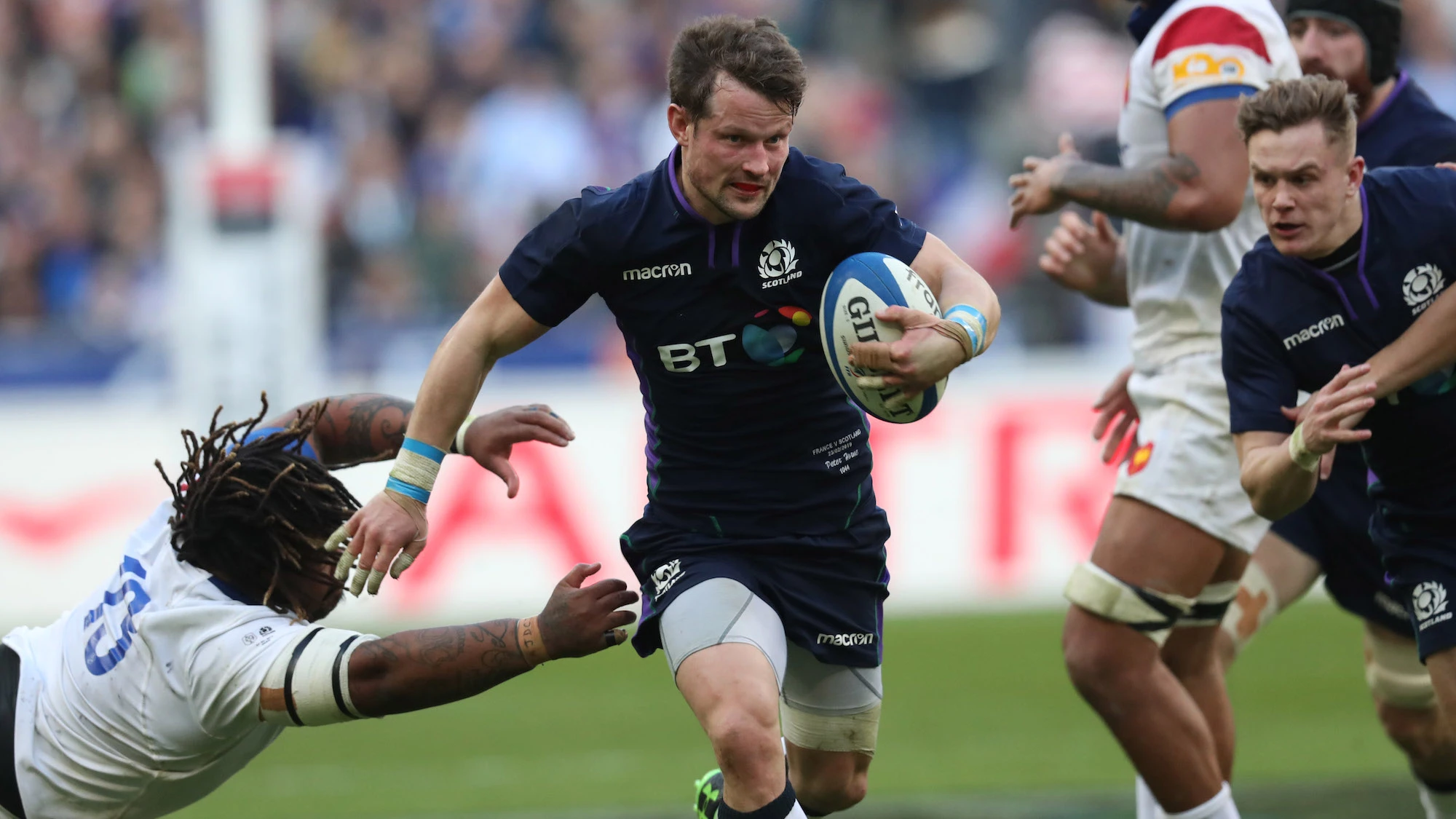The Guinness Six Nations never lacks for excitement increasing to a crescendo on Super Saturday.
Never has that been truer than in 2015 when Wales, Ireland and England were all battling it out for the Championship title – even France were mathematically alive going into Round 5.
So to celebrate 40 days until the 2023 Guinness Six Nations gets underway, we look back at perhaps the most famous 40 points scored in the Championship’s history, when Ireland’s 40-10 victory in Edinburgh ended up being just enough to take the spoils.
The Championship has never known a finish like it. Scott Gibbs in 1999 comes close, Brice Dulin’s try to deny Wales the 2021 Slam will not be forgotten for a long time, and of course there was the Ronan O’Gara/Stephen Jones drama as Ireland claimed a clean sweep in 2009.
However, 2015 was different. Four teams came into the final day with the possibility of winning the title, and three of them had reason to believe they would finish the day top of the pile at some point in a topsy-turvy afternoon.
The closest comparable finish came eight years earlier in 2007. That day, Ireland and France battled it out for the win, but England and Italy were also still in the hunt at kick-off in the opening game.
That day, a late Italian try against Ireland, and an even later French one in Paris swung the title to Les Bleus.
Nearly a decade on, the fates were rather kinder on Ireland.
So let us remind ourselves of how it all played out:
THE CONTEXT
The Championship kicked off in a feverish Cardiff on a Friday night, where England overcame an early ten-point deficit to beat Wales 21-16.
By the end of Round 3, Ireland were the only team still in Grand Slam contention, Robbie Henshaw’s try enough to edge past England 19-9 in Dublin.
Those hopes were ended a fortnight later in Cardiff as Shane Williams’ try helped Wales to a 23-16 success that left England, Ireland and Wales on three wins apiece, while France saw off Italy to stay in the Championship race, at least on the calculators.
Their hopes rested on defeats for Wales in Rome and Ireland in Edinburgh, before they would need a record victory at Twickenham – needless to say, it never came close.
For the others though, the drama and uncertainty started early and never let up.
WELSH PRESSURE
It all kicked off in Rome, Wales going into the day with the worst points difference of the title contenders, knowing that only a big win would give them any chance of taking the title.
When they led 14-13 at half-time, that seemed a remote possibility, as Ireland hooker Rory Best recalls: “We caught most of the first half of the Wales game before we had to meet and go and Italy had started pretty well.
“It was quite tight at half-time. We had the team meeting, hopped on the bus and arrived at BT Murrayfield.
“You walk down the tunnel at the stadium and a couple of the pillars have TVs, so we’re going out to have a look around the pitch and all of a sudden it went from 13-12 to 50 or 60 and we’re going, we might need a few more points here…”
Liam Williams got the ball rolling with a try seven minutes into the second half, the first of seven second-half tries for the visitors including a ten-minute hat-trick for George North.
From 14-13, they raced into a 61-13 lead.
But then, Italy had the final say, Leonardo Sarto finishing off a long-range effort for a try that Wales skipper Sam Warburton feared might prove costly.
“It was difficult because we gave away a try in the last minute which lost us seven points. I remember thinking that seven points could come back and haunt us,” he said.
“It didn’t but for quarter of an hour, 20 minutes, I thought, have we got an outside chance here? There was a quiet excitement when we spoke after.”
Sarto’s try brought back memories of Roland de Marigny in 2007, whose try in the final minute against Ireland made France’s job a tiny bit easier, and meant that Elvis Vermeulen’s try clinched a Championship.
On this occasion, a late Italian try made Ireland’s task simpler, even if they still needed to beat Scotland by 21 points to overtake Wales.
IRELAND MOVE TOP
Ireland had achieved what they needed to win the title twice in their history prior to that day, but they had a dream start when skipper Paul O’Connell spotted a gap around a ruck and crashed over after four minutes.
Johnny Sexton quickly made that 10-0 with a penalty, cancelled out by Greig Laidlaw’s penalty to get Scotland on the board.
Still, Ireland were looking more threatening and when Sean O’Brien finished off a trademark Joe Schmidt set-play score, Warburton knew that Wales were not going to be celebrating come the end of the day.
He said: “Ireland quickly went two tries up, it was at that point I realised they would be able to put up whatever score they needed to make sure they won the Championship.”
And yet Scotland were not done yet. A Rob Kearney error allowed them to get back into the game, Finn Russell eventually getting over for his first Test try as the home side trailed 20-10 at the break.
A Sexton penalty pushed the lead to 13 before he put Jared Payne through a gap to make it 30-10, drawing Ireland level with Wales on points difference – though still a try behind.
Two missed kicks from Sexton kept Wales in front, but on the hour-mark, he found his radar once again and put Ireland into the lead in the Championship for the first time.
O’Brien’s second ended Welsh hopes for good, as Ireland hit the magic 40-point barrier, but they needed a miraculous Jamie Heaslip tackle on Stuart Hogg to protect the margin of victory – that proved crucial come the end of the day.
THE CRAZIEST CRUNCH OF ALL
The equation for England was simple, if daunting. Beat France by 26 points and they would be champions. Anything less, and the title would stay in Ireland.
If they were hoping to come up with the perfect scenario, a try after 90 seconds would probably have featured, Jonathan Joseph, Mike Brown and George Ford combining to put Ben Youngs over.
Very quickly though, it became clear that France were here to play. Pouncing on a loose pass, Sébastien Tillous-Borde picked up and raced home from 70 metres out.
France quickly added another through Noa Nakataici and he nearly went over for a third as they threatened to completely derail the English cause.
Instead, England hit back through Anthony Watson and grabbed another through Youngs before half-time to lead 27-15 at the break, leading by 12 of the 26 they needed.
Maxime Mermoz eased Irish nerves with the first score of the second half, before George Ford responded in kind.
When Jack Nowell ran in England’s fifth try, they led 41-25 with 25 minutes remaining, before Vincent Debaty finished one of the great prop tries on the hour after a scintillating break by Nakaitaci.
Still the tries kept coming, Billy Vunipola for England, Benjamin Kayser for France before Nowell’s second made it 55-35.
England needed one more converted try and had four minutes to get there.
“To describe it as tortuous is probably being kind to how we felt,” recalled Schmidt.
“It was see-sawing and getting closer when Jack Nowell scored, then they got the driving lineout close.”
England had one final chance with a lineout five metres out, but could not get over, conceding a penalty.
That surely was it, but instead of kicking for touch, Yoann Huget decided to run from his own line, to the despair of Ireland supporters everywhere.
Best’s reaction to that decision was understandable: “I was just thinking, it’s not going to be our day, it’s not going to be our day.”
It could have been the call that sent the Championship England’s way, but instead, France held onto the ball and Rory Kockott made the pragmatic call to boot the ball out.
That meant the celebrations could begin in Edinburgh where Ireland had followed the match intently. Their supporters had done the same and were able to celebrate at BT Murrayfield in the dark as the team returned to the pitch to lift the trophy after the most dramatic finale of all. From Sarto to Heaslip to Kockott, every game had late drama, with Ireland coming out on top in the end.



